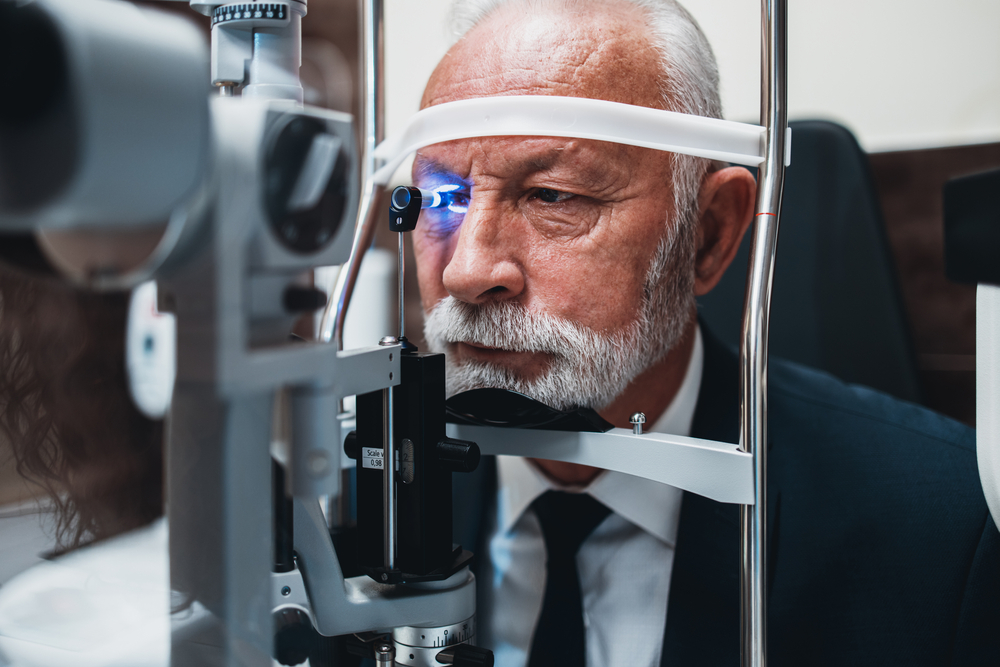
Regular eye exams are about more than just checking your vision - they can also play a significant role in maintaining overall health. They provide an opportunity for early disease detection, as certain health problems can manifest signs in your eyes before they do elsewhere in your body.
Eye exams involve more than determining your need for glasses or contact lenses. A comprehensive eye exam includes various procedures to inspect all aspects of your vision and eye health. The findings from these procedures can provide valuable information about your overall health.
Many people are unaware that eye exams can detect a variety of health conditions, not just eye diseases. This article will discuss eight significant health problems that an eye exam can uncover. Prioritizing regular eye exams can help you catch potentially serious health conditions early on, leading to more effective treatments and improved health outcomes.
Early Disease Detection Through Eye Exams
Eye exams provide a unique window into our health. The eyes are the only place in the body where doctors can see blood vessels, nerves, and connecting tissue without any surgical intervention. This allows for early disease detection, potentially before other clinical signs or symptoms become apparent.
An optometrist can often identify signs of systemic diseases by conducting a detailed examination of the eyes. Some diseases, such as diabetes and high blood pressure, can cause changes to the blood vessels in the retina, the layer of tissue at the back of the eye that senses light and sends images to the brain.
Cardiovascular Disease Detection
During an eye exam, your eye doctor can observe changes in the blood vessels at the back of your eye, also known as the retina. Conditions like atherosclerosis (hardening of the arteries) can cause changes to these vessels, such as narrowing or leaking. These signs can indicate an increased risk of heart disease or stroke.
Detecting Diabetes
One of the most common eye conditions related to diabetes is diabetic retinopathy. This condition affects the blood vessels in the retina, causing them to leak fluid or bleed. Over time, this can lead to vision loss. During an eye exam, your doctor can spot these changes and may suspect diabetes if you haven't already been diagnosed.
The early detection of diabetes through an eye exam can be lifesaving. It can prompt further testing and early treatment, helping to control blood sugar levels and prevent or delay complications.
Early Detection of High Blood Pressure
High blood pressure, or hypertension, is often called the "silent killer," as it typically has no noticeable symptoms until it has already caused significant damage. Regular eye exams can play a crucial role in detecting this condition early, potentially saving lives.
During an eye exam, your doctor can observe the condition of the blood vessels in your retina. Hypertension can cause changes to these vessels, such as narrowing, thickening, or even bleeding. These signs can alert your doctor to the possibility of high blood pressure, prompting further testing and treatment.
Early detection and control of high blood pressure can help prevent serious complications, such as heart disease, stroke, and kidney failure. Thus, regular eye exams are an essential part of maintaining your overall health.
Cancer Detection
Eye exams can also play a crucial role in early cancer detection. Certain types of cancer, such as melanoma and lymphoma, can affect the eyes. Your eye doctor can spot signs of these cancers during a routine eye exam.
Eye exams can reveal signs of cancers elsewhere in the body. For example, certain changes to the blood vessels in the retina can indicate the presence of brain tumors. Similarly, a swollen optic nerve, the nerve that connects the eye to the brain, can be a sign of intracranial pressure, which may be caused by a brain tumor.
Early detection of cancer significantly improves the chances of successful treatment and survival. These exams can play a critical role in cancer detection and prevention.
Detecting Autoimmune Disorders
Autoimmune disorders are conditions in which the body's immune system mistakenly attacks healthy tissues. Some of these diseases, such as rheumatoid arthritis and lupus, can affect the eyes, causing inflammation and other issues.
During an eye exam, your doctor can identify signs of these disorders. For example, dry eyes and inflammation of the iris, the colored part of the eye, can be signs of rheumatoid arthritis. Similarly, lupus can cause changes to the retina and blood vessels in the eye.
Early detection of autoimmune disorders can lead to early treatment, helping to control symptoms and prevent complications.
Early Detection of High Cholesterol
High cholesterol is a significant risk factor for heart disease. But did you know that an eye exam can detect signs of this condition?
During an eye exam, your doctor can observe the blood vessels in your retina. If you have high cholesterol, these vessels may show signs of cholesterol deposits or plaques. In some cases, a ring of cholesterol deposits can form around the cornea, the clear, domed surface that covers the front of the eye.
Early detection of high cholesterol can prompt lifestyle changes and medication, helping to lower cholesterol levels and reduce the risk of heart disease. Thus, regular eye exams are a crucial part of maintaining your overall health.
Conclusion
Eye exams are a critical part of maintaining not just eye health, but overall health. By providing a unique window into the body, they can reveal signs of systemic diseases, often before other symptoms appear. This allows for early disease detection, which can lead to early treatment and improved health outcomes.
They can detect a range of health problems, from heart disease and diabetes to cancer and autoimmune disorders. By prioritizing regular eye exams, you can take a proactive approach to your health, catching potential issues early and getting the care you need promptly.
For more information on health problems that an eye exam can detect, visit Dr. Stephen Nevett and Associates at our office in Seattle or Kirkland, Washington. Call (206) 364-2273 or (425) 602-6153 to discuss any questions with our team of experts or to schedule an appointment today.







